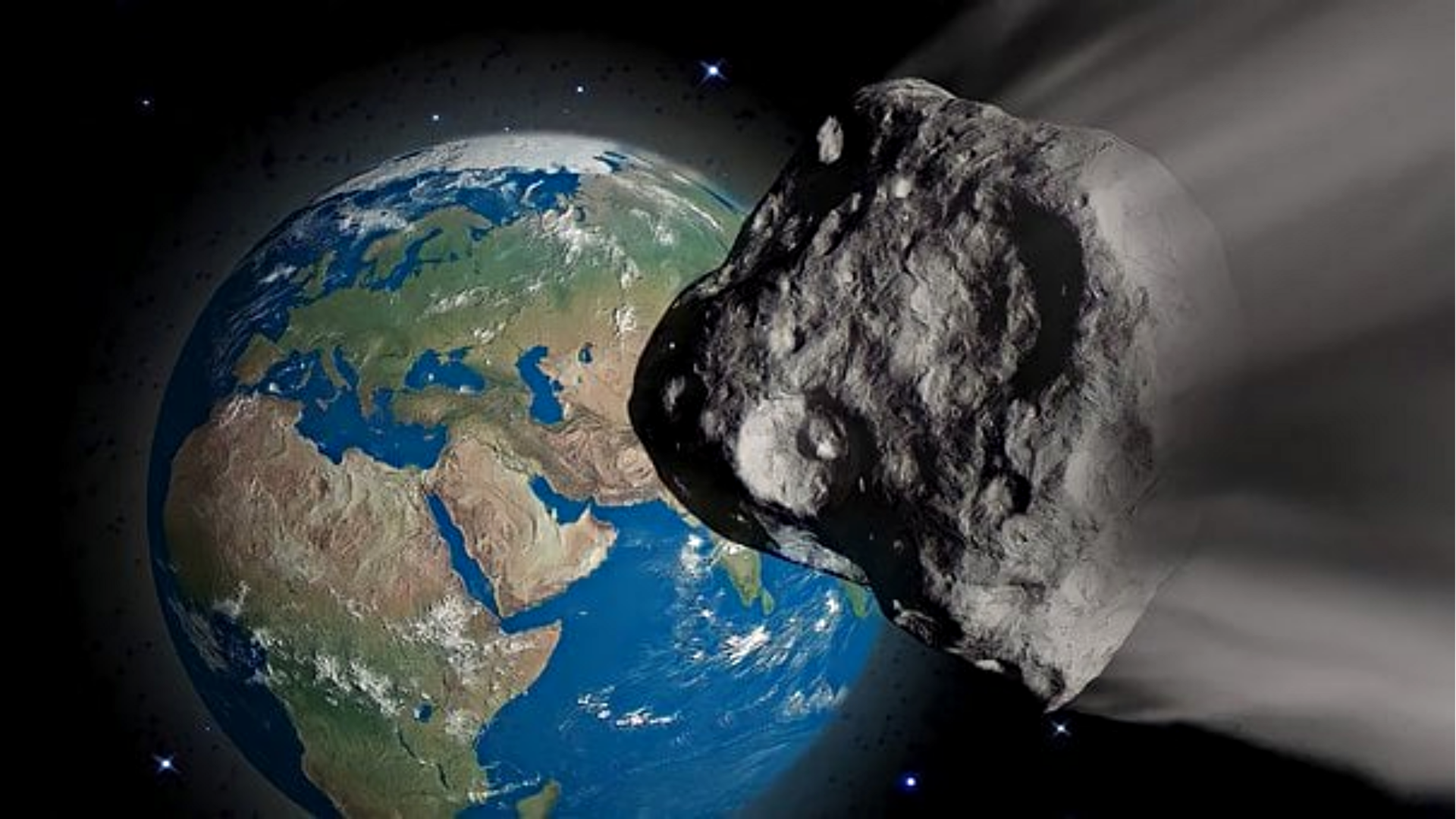
A 120-ft asteroid will come close to Earth today: NASA
What's the story
A 120-foot wide asteroid, dubbed 2022 VR1, is heading Earth's way. It will make a dangerously close approach to our planet on Sunday (November 20), according to NASA. The rock is hurtling at 20,483km/h and will come as close as 1.559 million km to us. NASA is keeping a close watch on the asteroid's path of travel. We hope it doesn't deviate.
Context
Why does this story matter?
Asteroid collisions have always been a subject of terror for humanity. These space rocks pose a serious threat, and their wrath cannot be controlled in any way if they strike Earth. Hence, NASA keeps an eye out for near-Earth objects that could cause trouble to our planet. The agency is even investing in more research on asteroid strike prevention measures.
Velocity
2022 VR1 is moving at 20,483km/h
NASA has included the asteroid 2022 VR1 in the database of the Center for Near Earth Object Studies (CNEOS). The space agency revealed that the rock is traveling at a speed of 20,483km/h. With the aid of its planetary defense system, NASA is continuously monitoring the movement of the asteroid. It will be tracked until it makes a safe passage.
Possibility
Last-minute deflections may lead to trajectory changes
Usually, objects within the Earth's 7.4 million km radius are considered to be "potentially hazardous." The asteroid 2022 VR1 will come terrifyingly close to the Earth. It will approach us at 1.559 million km. Despite its close proximity, NASA predicts that the space rock will fly by us safely while making a very near passage. However, last-minute deflections may change its trajectory.
Steps
NASA uses radio telescopes to track asteroids
NASA continuously monitors asteroids and other near-Earth objects using the technologies it has deployed. So far, the agency has gathered data on close to 20,000 asteroids. The monitoring tech includes planetary radar like radio telescopes, several types of equipment from research laboratories, and more. By conducting research programs, NASA is also learning more about how to prevent asteroid strikes.